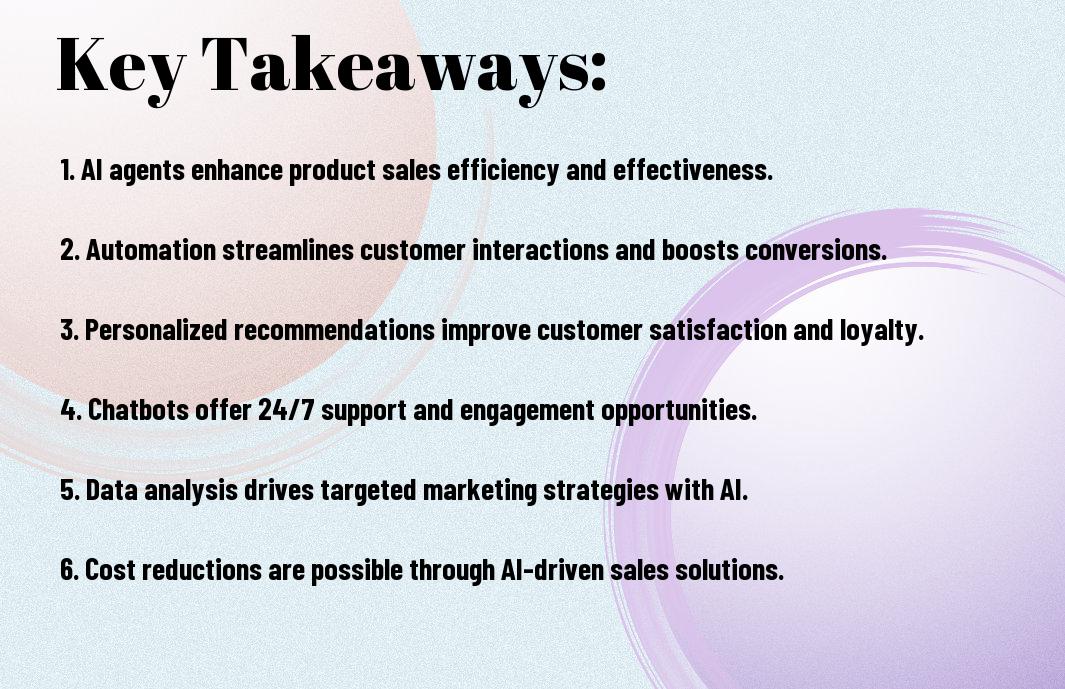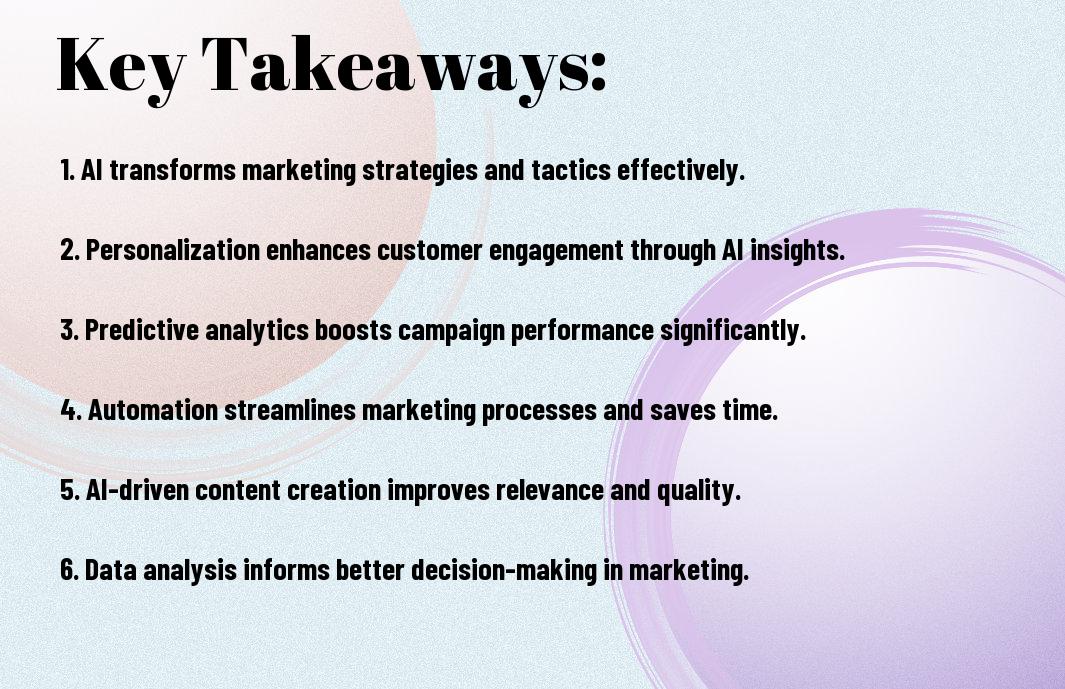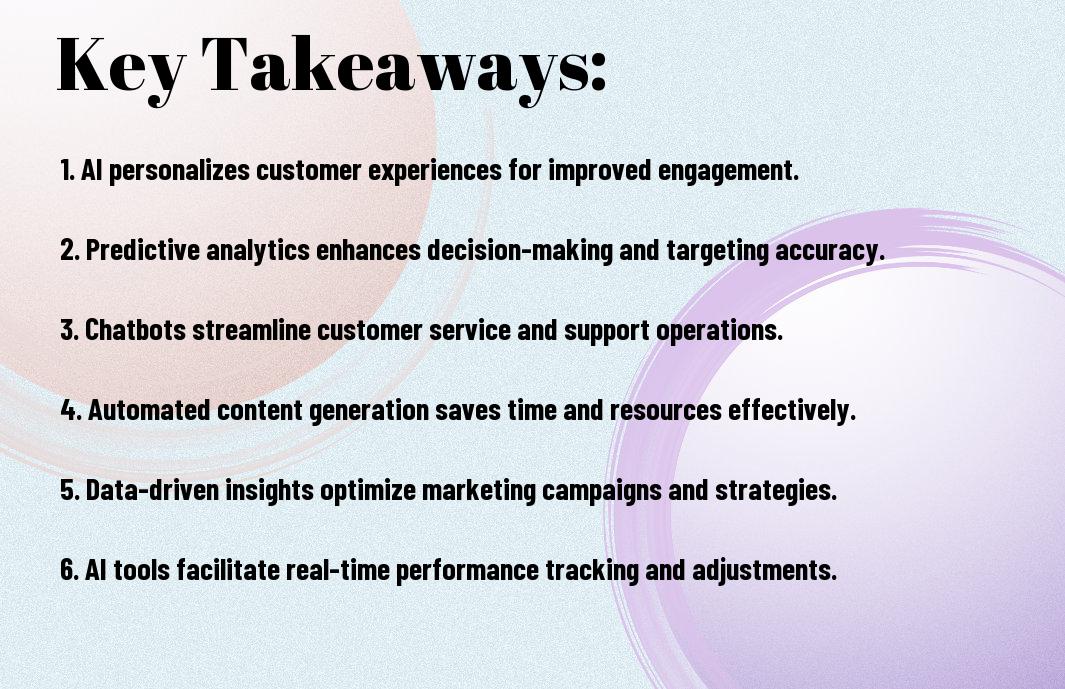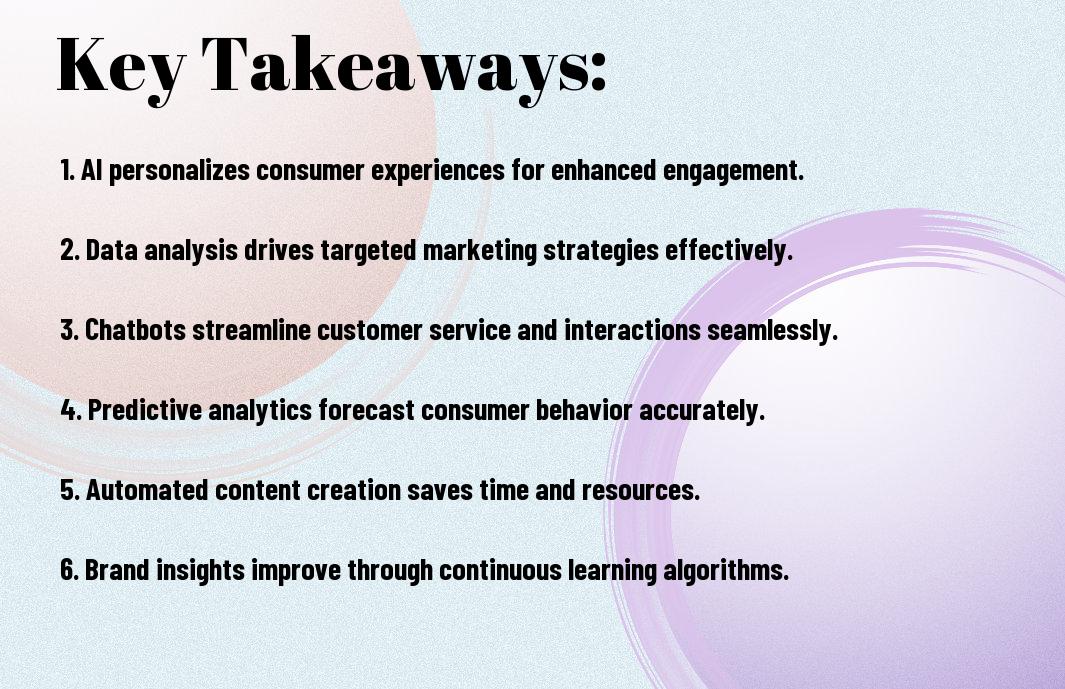You are likely aware that a well-structured sales process is imperative for your business’s success. As you explore ways to enhance your sales strategy, consider the impact of PDF marketing materials. By leveraging these resources, you can effectively communicate your value proposition and build trust with potential customers. For a deeper understanding of this concept, you can refer to the study on Sales transformation: conceptual domain and dimensions, which provides valuable insights into transforming your sales approach.
Key Takeaways:
- Effective use of PDF marketing materials can significantly enhance the sales process by providing potential customers with engaging, informative, and easily shareable content that showcases products or services in a compelling manner.
- Well-designed PDFs can help establish a company’s brand identity and build trust with its audience, making them more likely to move forward in the sales funnel and ultimately convert into customers.
- By incorporating interactive elements, such as links, videos, and fillable forms, into PDF marketing materials, businesses can create a more immersive experience for their target audience, driving higher engagement and conversion rates.
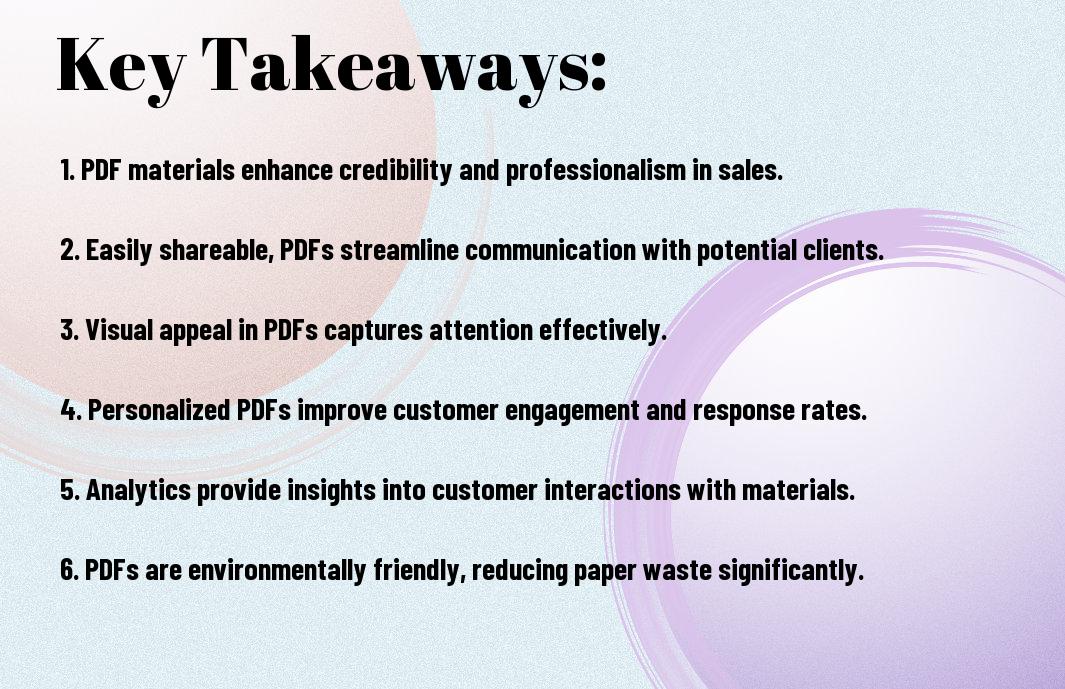
Digital Evolution in Sales Materials
For years, you’ve been using traditional sales materials, but now it’s time to transform your sales process with digital evolution. You can leverage PDF marketing materials to enhance your sales strategy and improve customer engagement.
Traditional vs. PDF Marketing Assets
Evoking a new era in sales, you can shift from traditional materials to PDF marketing assets, which offer more flexibility and accessibility, allowing you to easily share and update your content, making it more convenient for your customers.
Modern Customer Engagement Patterns
Beside the benefits of digital sales materials, you need to understand modern customer engagement patterns to effectively use PDF marketing materials, which enable you to track interactions and analyze customer behavior, helping you to refine your sales approach.
A key aspect of modern customer engagement patterns is the ability to provide personalized experiences, and with PDF marketing materials, you can tailor your content to specific customer segments, increasing the likelihood of conversion and enhancing your overall sales performance, allowing you to stay ahead of the competition and achieve your business goals.
Core Benefits of PDF Marketing
Some of the key advantages of using PDF marketing materials include increased engagement, improved brand consistency, and enhanced customer experience. You can leverage PDFs to create immersive and interactive content that resonates with your target audience, setting your brand apart from the competition.
Cost and Distribution Efficiency
Between the ease of creation and the convenience of digital distribution, PDF marketing materials offer a cost-effective solution for your business. You can easily share your PDFs via email, social media, or your website, reaching a wider audience without incurring significant printing and shipping costs.
Analytics and Tracking Capabilities
With the ability to track opens, clicks, and downloads, you can gain valuable insights into your customers’ behavior and preferences. You can use this data to refine your marketing strategy, creating more targeted and effective campaigns that drive real results for your business.
Also, as you research deeper into the analytics, you can identify areas of improvement, optimizing your PDF marketing materials to better meet the needs of your audience, and ultimately, boosting your conversion rates and revenue. You can use tools to monitor how your customers interact with your PDFs, helping you to create more engaging and relevant content that resonates with them.

Design Elements for Impact
After creating your PDF marketing materials, you need to focus on design elements that drive engagement and conversions. You can use images, fonts, and colors to create a visually appealing design that reflects your brand and captures your audience’s attention.
Visual Hierarchy in PDFs
Essentially, elements like headings, subheadings, and bullet points help create a clear visual hierarchy, guiding your readers through the content and making it easier for them to understand your message. You can use size, color, and placement to draw attention to key information and create a logical flow.
Interactive Features Integration
To take your PDFs to the next level, you can integrate interactive features like links, buttons, and forms, allowing your readers to engage with your content in a more dynamic way. You can use these features to encourage your audience to visit your website, sign up for a newsletter, or fill out a survey.
Features such as animations, videos, and audio clips can also be added to your PDFs, making them more engaging and interactive. You can use these features to demonstrate products, explain complex concepts, or provide testimonials, helping you to build trust and credibility with your audience and ultimately driving sales and conversions.
Sales Process Integration
To effectively transform your sales process, you need to consider how PDF marketing materials can be seamlessly integrated into your existing workflow, enhancing your overall sales strategy and improving customer engagement.
Customer Journey Mapping
Beneath the surface of your sales process lies the customer journey, and by mapping this journey, you can identify key touchpoints where PDF marketing materials can be used to educate and engage your customers, ultimately driving sales and revenue growth.
Strategic Content Placement
Inline with your sales strategy, you should consider strategic content placement, where your PDF marketing materials are positioned to maximize impact, providing valuable information to your customers at the right time and guiding them through the sales process.
In fact, strategic content placement is about more than just placing your PDF marketing materials in the right location – it’s about understanding your customer’s needs and preferences, and using this insight to deliver targeted, personalized content that resonates with them and drives conversion, allowing you to optimize your sales process and improve your bottom line.
Security and Accessibility
Many businesses prioritize the security and accessibility of their PDF marketing materials to ensure that sensitive information is protected and easily accessible to their target audience. You can control who views and edits your documents, maintaining the integrity of your sales process.
Document Protection Methods
Betwixt the various security features, you can encrypt your PDFs, set passwords, and restrict editing capabilities, giving you peace of mind when sharing your marketing materials with clients and prospects.
Multi-device Optimization
Document accessibility is vital in today’s mobile-driven world, and you can optimize your PDFs to be viewed seamlessly across various devices, ensuring that your sales message is conveyed effectively regardless of the platform used.
Indeed, when you optimize your PDF marketing materials for multi-device accessibility, you enable your audience to engage with your content anywhere, at any time, increasing the chances of converting leads into sales, and ultimately, driving revenue growth for your business, as you can track and analyze the performance of your PDFs across different devices and platforms.
Implementation Strategy
Once again, you’ll need to assess your current sales process and identify areas where PDF marketing materials can be effectively integrated, ensuring a seamless transition and maximum impact on your sales performance.
Team Training and Adoption
Along with introducing new PDF marketing materials, you’ll need to provide your team with comprehensive training to ensure they understand how to effectively utilize these resources, and adopt them into their daily sales routines, ultimately enhancing your overall sales strategy.
Performance Metrics
Among the key factors to consider when implementing PDF marketing materials is tracking their performance, allowing you to gauge their effectiveness and make data-driven decisions to optimize your sales process, and adjust your strategy accordingly, to achieve the best possible results for your business.
Plus, by closely monitoring the performance of your PDF marketing materials, you can gain valuable insights into customer engagement, conversion rates, and sales team performance, enabling you to refine your approach, make targeted improvements, and continually enhance your sales process, driving growth and increasing revenue for your business, as you analyze the metrics and adjust your strategy to maximize the impact of your PDF marketing materials on your sales performance.
Summing up
From above, you can see how transforming your sales process with PDF marketing materials can elevate your business. You will be able to create engaging content, build trust with your audience, and ultimately drive more sales. By leveraging the power of PDFs, you can take your marketing efforts to the next level and achieve your goals. You will be able to reach your target audience more effectively, making your marketing strategy more efficient and successful.
FAQ
Q: What is the role of PDF marketing materials in transforming the sales process?
A: PDF marketing materials play a significant role in transforming the sales process by providing a professional and engaging way to present information to potential customers. They can be easily shared, accessed, and viewed on various devices, making them an effective tool for sales teams to communicate their message and build trust with their audience. Well-designed PDFs can help to showcase products or services, highlight key benefits, and provide valuable insights, ultimately helping to move leads through the sales funnel.
Q: How can PDF marketing materials be used to personalize the sales experience?
A: PDF marketing materials can be used to personalize the sales experience by tailoring the content to specific customer segments or industries. By using targeted language, imagery, and data, sales teams can create PDFs that resonate with their audience and address their unique needs and pain points. Additionally, PDFs can be easily updated and customized to reflect changing customer requirements, ensuring that the sales message remains relevant and effective. This personalized approach helps to build stronger relationships with customers and increases the likelihood of conversion.
Q: What are the benefits of using interactive PDF marketing materials in the sales process?
A: Interactive PDF marketing materials offer several benefits in the sales process, including enhanced engagement, improved understanding, and increased conversions. Interactive elements such as links, videos, and animations can help to capture the audience’s attention, convey complex information in a clear and concise manner, and encourage participation. Furthermore, interactive PDFs can provide valuable insights into customer behavior and preferences, allowing sales teams to refine their approach and optimize their strategy for better results.
Q: How can PDF marketing materials be optimized for mobile devices to support the sales process?
A: To optimize PDF marketing materials for mobile devices, sales teams should ensure that their PDFs are designed with a mobile-first approach, using clear and concise language, easy-to-read fonts, and a layout that is easy to navigate on smaller screens. Additionally, PDFs should be optimized for fast loading times, and interactive elements should be tested to ensure they function correctly on mobile devices. By providing a seamless and engaging mobile experience, sales teams can increase the effectiveness of their PDF marketing materials and improve the overall sales process.
Q: What metrics should be tracked to measure the effectiveness of PDF marketing materials in the sales process?
A: To measure the effectiveness of PDF marketing materials in the sales process, sales teams should track metrics such as open rates, click-through rates, conversion rates, and time spent viewing the PDF. Additionally, metrics such as lead generation, customer engagement, and sales revenue can provide valuable insights into the impact of PDF marketing materials on the sales process. By monitoring these metrics, sales teams can refine their PDF marketing strategy, identify areas for improvement, and optimize their approach to achieve better results and drive business growth.


